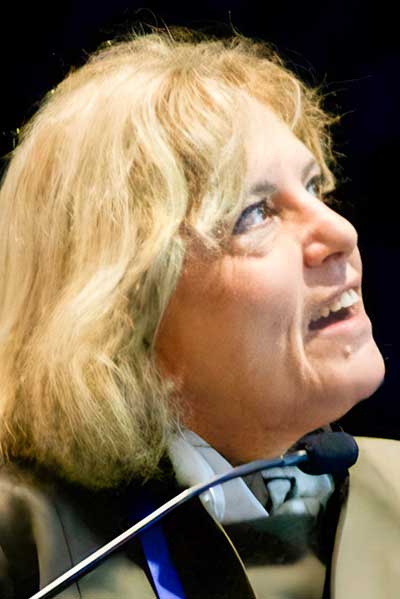New scientific developments in the last 10 years have demonstrated that polyarteritis nodosa (PAN), a rare rheumatological condition that can result in medium-size vessel necrotizing vasculitis and can require aggressive treatment, is a distinct clinical entity. Newly recognized monogenic disease forms mimic PAN but are not the same disease.
A session at ACR Convergence 2023 will discuss recommendations for the treatment of pediatric patients and explore whether the COVID-19 pandemic was associated with an increase in diagnoses.
Pediatric Polyarteritis Nodosa: Cutaneous vs. Systemic will take place on Wednesday, Nov. 15, from 10:30–11:30 a.m. in Room 8 of the San Diego Convention Center. The session will be available on demand within 24 hours of the session for registered ACR Convergence 2023 participants.

“PAN is a syndrome, not a single disease. We are now aware of several monogenic inborn errors that give a similar presentation, such as deficiency of adenosine deaminase 2 (DADA2), stimulator of interferon genes (STING)-associated vasculopathy (SAVI), and chronic atypical neutrophilic dermatosis with lipodystrophy and elevated temperature (CANDLE) syndrome, as well as reported cases related to COVID-19,” said Tadej Avcin, MD, PhD, Professor of Pediatric Rheumatology and Head of the Department of Allergology, Rheumatology and Clinical Immunology at the Children’s Hospital, University Medical Center, Ljubljana, Slovenia. He will discuss registry data and therapeutics for PAN.
Dr. Avcin, who is also Secretary of the Pediatric Rheumatology European Society (PRES), will share European recommendations on the treatment of PAN in pediatric patients and present new data on the treatment of the monogenic forms.
“With systemic disease, first we need to assess the disease severity. Cutaneous PAN is a milder form that primarily affects the skin, and in its more difficult form causes skin ulcerations,” Dr. Avcin said.
Cutaneous PAN is usually treated less aggressively, with nonsteroidal anti-inflammatory drugs (NSAIDs) or, rarely, corticosteroids.
“In patients with systemic disease, it causes diseased vessels in several organs, most commonly the kidneys, and can also cause heart infarction, stroke, bowel ischemia, and digital gangrene,” Dr. Avcin said. “It will be treated aggressively with corticosteroids and cyclophosphamide or mycophenolate mofetil (MMF), and in patients with refractory disease, providers use biological treatments such as anti-tumor necrosis factor (TNF) drugs, tocilizumab, or rituximab.”
When necrotizing vasculitis in DADA2 is combined with an underlying immune deficiency, it is treated even more aggressively, with a hematopoietic stem cell transplantation, he explained.
“As we get new knowledge of the pathogenesis behind this, you can imagine that treatment would somehow be different if we knew the underlying genetic cause,” added Dr. Avcin, noting that a recent study, MYPAN, showed noninferiority of MMF to cyclophosphamide in pediatric patients.

Given the forms of monogenic disease presenting symptoms similar to PAN, genetic testing assumes greater importance, according to Dr. Avcin.
“Most of the centers now routinely perform genetic testing if patients present with a disease that resembles systemic PAN, but it depends on the center, their experience, and the accessibility of genetic testing. They definitely should perform a genetic test in every child. There is a panel for systemic vasculitis and autoinflammatory diseases mimicking PAN, including testing for a monogenic disease called DADA2,” he said.
Seza Özen, MD, MSc, Professor and Head of the Department of Pediatric Rheumatology at Hacettepe University Medical Faculty in Ankara, Turkey, will discuss clinical features and imaging of cutaneous and systemic PAN.
“I will be presenting the main features of systemic PAN and problems in classification. I will also talk about how the spectrum of necrotizing medium vessel vasculitis has changed over the years, and I will present unpublished international data, which has been submitted, covering the clinical spectrum of the disease and comparing the disease in children and adults,” Dr. Özen said.
Register Today for ACR Convergence 2024

If you haven’t registered for ACR Convergence 2024, register today to participate in this year’s premier rheumatology experience, November 14–19 in Washington, D.C. All registered participants receive on-demand access to scientific sessions after the meeting through October 31, 2025
